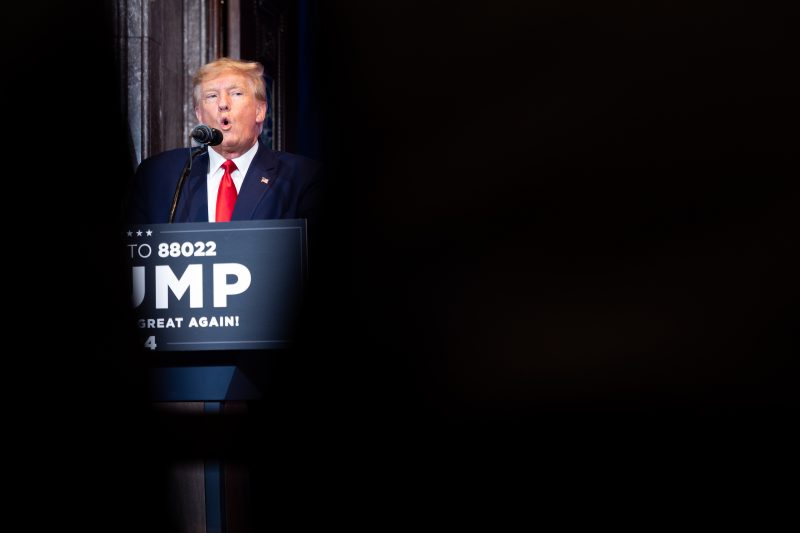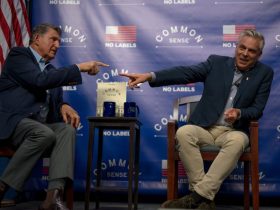Those awaiting a potential blockbuster report from the Fulton County special grand jury’s investigation of Donald Trump and his allies’ efforts to overturn the 2020 election are apparently going to have to keep waiting. A judge released a rather minimal excerpt of the report Thursday and left the rest under seal.
To the extent we learned anything, it’s that the grand jury thinks one or more witnesses might have committed perjury — though we don’t know who.
Beyond that, the report states that the grand jury voted unanimously that there was no voter fraud sufficient enough to overturn Georgia’s tight 2020 presidential election results.
“The grand jury heard extensive testimony on the subject of alleged election fraud from poll workers, investigators, technical experts, and State of Georgia employees and officials, as well as from persons still claiming that such fraud took place,” the report reads. “We find by a unanimous vote that no widespread fraud took place in the Georgia 2020 presidential election that could result in overturning that election.”
Why is the grand jury weighing in on this? Some surmised the jurors could be establishing a threshold question when it comes to whether any actions related to efforts to overturn Georgia’s election results were corrupt, or whether any statements made were false. If it’s determined the evidence just wasn’t there, perhaps certain actions become more legally problematic.
Georgia State University law professor Clark D. Cunningham didn’t necessarily see it that way, though, saying, “In terms of potential charges, I don’t think it was necessary for them to make that finding.”
Regardless, the fact that this finding was noted and unanimous (two dozen grand jurors heard evidence from 75 witnesses, including those claiming the existence of voter fraud) reinforces Trump and his allies’ failure to substantiate claims of a stolen election — claims that persist.
The Fulton County special grand jury report lands on top of a growing pile. Just last week, we learned that a similar conclusion was reached by a firm hired by Trump’s own campaign. Below are some of the major such findings to date, which are worth remembering as candidate Trump continues to push his false narrative.
The Washington Post’s Josh Dawsey reported last week that, at the end of 2020, Trump’s campaign paid researchers from the Berkeley Research Group to study six states, in search of evidence to highlight in public and in court. But it came up empty.
A person familiar with the group’s findings told The Post: “None of these [areas of inquiry] were significant enough. Just like any election, there are always errors, omissions and irregularities. It was nowhere close enough to what they wanted to prove, and it actually went in both directions.”
A GOP-commissioned review of 2.1 million ballots — which Trump hyped extensively in advance — confirmed the accuracy of Joe Biden’s win in Maricopa County.
State Senate President Karen Fann (R) noted that the review “matches Maricopa County’s official machine count.” She added, “This finding therefore addresses the sharpest concerns about the integrity of the certified results in the 2020 general election.”
Pima County also conducted its own review of 151 potential voter-fraud incidents, declining to file criminal charges in any of them.
A GOP-led state Senate committee released a report in mid-2021 that debunked many of the most popular claims lodged by Trump and his allies — on Antrim County, on dead people voting, on the Detroit “ballot dump,” etc. — point by point.
“This Committee found no evidence of widespread or systematic fraud in Michigan’s prosecution of the 2020 election,” the report said.
It added of the Antrim County claims: “The Committee finds those promoting Antrim County as the prime evidence of a nationwide conspiracy to steal the election place all other statements and actions they make in a position of zero credibility.”
A Wisconsin judge last summer said that the taxpayer-funded investigation, ordered by Republicans in the State Assembly, found “absolutely no evidence of election fraud.”
The conservative heavyweights, including former senator John Danforth (R-Mo.), election attorney Benjamin Ginsberg and other prominent legal minds, including former judges, released a detailed 70-page report on the various claims, lawsuits and audits last summer called “Lost, Not Stolen.”
“There is absolutely no evidence of fraud in the 2020 Presidential Election on the magnitude necessary to shift the result in any state, let alone the nation as a whole,” the report stated. “In fact, there was no fraud that changed the outcome in even a single precinct.”
An extensive Associated Press investigation from late 2021 found a “review of every potential case of voter fraud in the six battleground states disputed by former President Donald Trump has found fewer than 475 — a number that would have made no difference in the 2020 presidential election.”
“The cases could not throw the outcome into question even if all the potentially fraudulent votes were for Biden, which they were not, and even if those ballots were actually counted, which in most cases they were not,” the AP reported.
The New York Times conducted a similar review, contacting elections officials of both parties across dozens of states, and found much the same thing.
Trump’s own attorney general told the AP in December 2020 that “to date, we have not seen fraud on a scale that could have effected a different outcome in the election.” Barr has since stood by that assessment, and also said he told Trump about the lack of evidence for widespread fraud — including under oath in testimony to the Jan. 6 committee.
Various other Trump aides and allies, including those tasked with rooting out supposed fraud, told the committee similar things.
Despite Trump’s continued claims that the legal system didn’t evaluate his claims on the merits of the evidence, many courts did.
PolitiFact found that, across 64 cases, 30 included hearings on the merits, while 20 were dismissed before they got to that point, and 14 were dropped by Trump and his allies before they could get to the merits.
Virtually none of these efforts were successful in any way.








